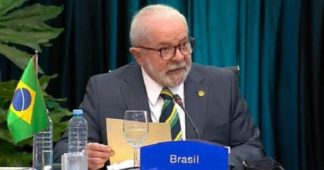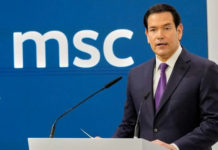Brazilian President-elect Lula da Silva and former foreign minister Celso Amorim discuss how international cooperation failed in the face of the Covid-19 pandemic, and why a fair multilateral order must be founded on social justice.
By Luiz Inácio Lula da Silva and Celso Amorim
Feb 12, 2022
Since the beginning of 2020 — and with greater intensity since the World Health Organization (WHO) declared the spread of Covid-19 a pandemic — governments and civil societies have been grappling with a crisis of almost unseen proportions.
Lives were lost by the thousands each day and in every corner of the world. Economies, which had hardly recovered from the financial crisis of the last decade, entered a period of economic decline unmatched since the Great Depression of the 1930s.
Political systems are under stress, and populist authoritarian leaders have rushed to exploit the feeling of insecurity brought about by the pandemic to increase their own personal power, thus weakening already fragile democracies. Some of them, from Donald Trump to Jair Bolsonaro, adopted an attitude of denial, ignoring recommendations of scientists and health specialists.
With this gruesome picture in the background, international cooperation suffered a severe blow during the pandemic. The egotistical behavior of some leaders prevented access to essential goods and medicines for those most in need. Acts of sheer piracy were practiced by the most powerful. At the same time, multilateral organizations like the WHO were deprived of resources under false accusations of political bias. The UN Security Council, the most powerful international body, failed to come to any decision or even offer a minimally meaningful recommendation in relation to this tragedy. Informal bodies, such as the G20, could not overcome the differences between their members and approve a plan of action to face the crisis.
Plainly ignored were appeals by the UN Secretary-General and the UN High Commissioner for Human Rights — echoed, among others, by Pope Francis — to suspend unilateral sanctions so that targeted nations such as Iran, Cuba, and Venezuela can have access to resources to purchase essential medical material and receive humanitarian assistance. Multilateralism was abandoned without shame.
As we look ahead — and supposing the current nightmare will eventually dissipate, albeit only after immense human loss, in terms of lives and well-being — it is common to hear that “the world will never be the same.” And, indeed, it is to be hoped that humankind will learn the lessons from the unexpected onslaught by a microscopic entity, an onslaught that continues to bring death and misery, especially to those who are at the bottom of our unequal societies.
The pandemic has shaken the pillars of our way of life, and — together with it — those of the international order. There seems to be an almost universal consensus that the world system will have to be rebuilt in a very fundamental way. The question is: How?
For many analysts, we are entering a kind of “new cold war” — or something even worse — as a result of the so-called “Thucydides Trap,” an expression created by diplomat-turned-scholar Graham Allison to indicate the potential for conflict arising from the emergence of a new superpower in defiance of the previously dominant one.
According to this view, the “overtaking” of the United States by China — a process that appeared inevitable even before the pandemic — will be accelerated, generating great instability. At the same time, many governments and the peoples they represent, wary of unbridled globalization based on the crude pursuit of profit — most notably by financial capital — will be tempted to plunge into some sort of isolationism, skeptical about the value of international cooperation.
It does not necessarily have to be so. Nations as well as individuals may become less dominated by hubris — and may come to understand the need for greater solidarity and humility in facing challenges posed by nature and by human beings themselves.
It is not impossible, indeed it is imperative, that a certain number of states or supranational entities — such as a reborn European Union and the institutions dedicated to the integration of developing countries in Latin America, Africa and Asia (which will have to be reinforced or recreated) — shall look for alliances and partnerships, in a way that contributes to the creation of a multipolar world, free from unilateral hegemony and from sterile bipolar confrontation.
Such alliances, based on “variable geometry,” would permit a true re-founding of the multilateral order, based on principles of real multilateralism, in which international cooperation can truly flourish. In a scenario like this, China, the United States, and Russia may be convinced that dialogue and cooperation are more beneficial than war (cold or otherwise).
This will only happen, however, as individual countries — especially those with natural conditions to exert non-hegemonic leadership — find ways to democratize their own political systems, making themselves more responsive to the needs of their peoples, especially of their more vulnerable sectors. Social justice and democratic government will have to go hand in hand.
It may sound utopian to think in these terms at such a bleak point in history, when civilization itself seems to be in danger. But, for those of us who believe in the human capacity to find creative responses to all kinds of unexpected challenges, sounding utopian should not deter common action. Nor should it make us give way to despair.
Also read
Multipolarity: The need for a positive content
We remind our readers that publication of articles on our site does not mean that we agree with what is written. Our policy is to publish anything which we consider of interest, so as to assist our readers in forming their opinions. Sometimes we even publish articles with which we totally disagree, since we believe it is important for our readers to be informed on as wide a spectrum of views as possible.











